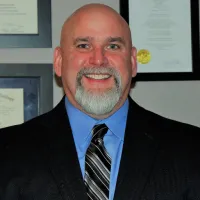Follow Us:
The Block Talk Blog

Understanding and Addressing Correctional Staff Suicide: Breaking the Silence
“Suicide is a permanent solution to a temporary problem.”- Unknown
Introduction:
Correctional staff serve on the frontlines of our justice system, often facing intense and prolonged exposure to stress, trauma, and challenging work environments. While much attention is rightly given to the mental health and well-being of inmates, the mental health struggles of correctional staff themselves often go overlooked. In recent years, there has been a growing recognition of the alarming rates of suicide among correctional professionals. This blog post aims to shed light on this critical issue, explore its underlying causes, and discuss steps that can be taken to address and prevent correctional staff suicide.

The Silent Crisis
Correctional staff suicide is a silent crisis within the criminal justice system. These dedicated professionals face unique stressors and challenges in their roles, including exposure to violence, trauma, long hours, understaffing, and a lack of resources and support. Despite the critical nature of their work, correctional staff often suffer in silence, fearing stigma, retaliation, or judgment if they seek help for their mental health struggles.
Understanding the Causes
Several factors contribute to the heightened risk of suicide among correctional staff:
Stress and Trauma: Correctional staff are exposed to high levels of stress and trauma on a daily basis, including witnessing violence, dealing with difficult inmates, and facing constant threats to their safety. Over time, this chronic exposure can take a significant toll on their mental health.
Work Environment: The correctional environment is often characterized by high levels of tension, unpredictability, and a culture of toughness. Staff may feel isolated, unsupported, or unable to express vulnerability due to the nature of their work culture.
Stigma and Shame: There is a pervasive stigma surrounding mental health within the correctional system, which may prevent staff from seeking help or disclosing their struggles. Fear of judgment, discrimination, or repercussions can further deter individuals from accessing support services.
Lack of Resources: Correctional facilities may lack adequate mental health resources and support services for staff, leaving them without access to the care they need. Limited training in mental health awareness and coping strategies may also contribute to feelings of helplessness or despair.
Breaking the Silence
Addressing correctional staff suicide requires a multifaceted approach that prioritizes prevention, intervention, and support. Here are some key strategies:
Promote Mental Health Awareness: Increase awareness and education around mental health issues within the correctional system. Provide training on recognizing the signs of distress, coping strategies, and accessing support services.
Normalize Help-Seeking Behaviors: Challenge the stigma surrounding mental health and encourage open discussions about emotions, stress, and well-being. Create a culture that supports help-seeking behaviors and prioritizes self-care.
Provide Accessible Support Services: Ensure that correctional staff have access to confidential and stigma-free mental health services, including counseling, therapy, and peer support groups. Offer resources tailored to the unique needs and challenges of correctional professionals.
Implement Suicide Prevention Programs: Develop and implement suicide prevention programs that address the specific risk factors and stressors faced by correctional staff. Provide training in suicide awareness, intervention techniques, and postvention support for colleagues.
Strengthen Organizational Support: Foster a supportive work environment that values the mental health and well-being of correctional staff. Implement policies and practices that promote work-life balance, reduce job-related stressors, and prioritize staff safety and wellness.
Conclusion
Correctional staff suicide is a complex and pressing issue that demands urgent attention and action. By breaking the silence surrounding mental health, challenging stigma, and prioritizing support and prevention efforts, we can create a safer and healthier work environment for correctional professionals. Together, we must work towards a system that values and protects the well-being of all individuals within the criminal justice system, including those who serve on the frontlines every day.
Follow Us
Follow Us

The Corrections Community Network is an online community created by correctional professionals for correctional professionals. We are dedicated to the health, wellness, personal and professional development of corrections, probation and parole staff everywhere.
Contact Us
john@thecorrectionsdr.com
- Monday - Friday, 8:00 am - 5:00 pm
The Corrections Community Network. All rights reserved.
© Copyright 2026.

